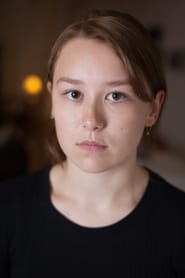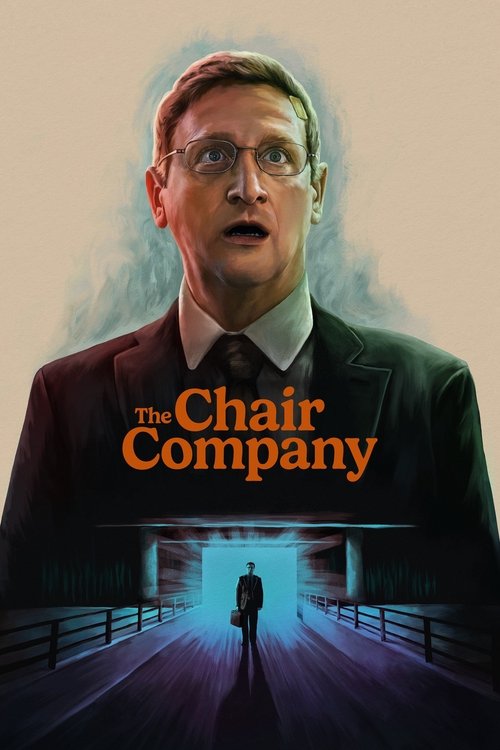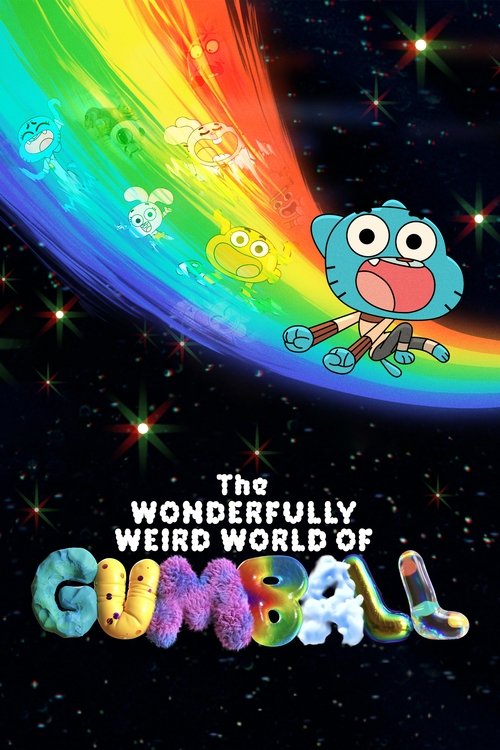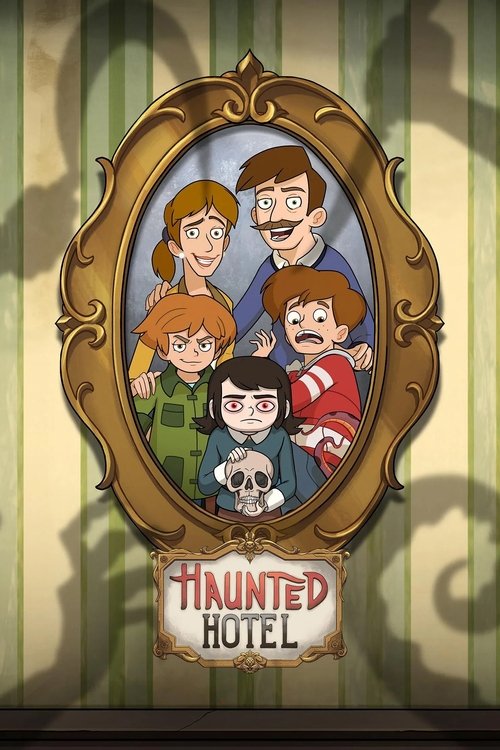
Ask Your Own Question
What is the plot?
The series begins with Evie Havisham, a young woman who has not left her house in six months following a mental health "wobble." She has created a weekly film club in her garage as a way to escape her agoraphobia and connect with others. The garage is transformed each week to match the theme of the film they watch, creating a whimsical and immersive environment. Evie's best friend Noa is one of the few people who still visits regularly, supporting her through this period.
Early episodes establish the dynamic between Evie and Noa, who share a deep but unspoken affection for each other. Evie is in a relationship with Josh, her boyfriend, which complicates her feelings. Noa, meanwhile, is preparing to move to Bristol for his dream job, which threatens the continuation of the film club and forces both to confront their emotions. The tension builds as neither Evie nor Noa is adept at expressing their feelings, leading to moments of awkwardness and missed opportunities.
Evie's home life is depicted with her fiercely loving single mother Suz, her sister Izzie, and Josh, who sometimes feels like part of the household. The family interactions add layers of complexity and warmth, showing Evie's struggle to balance her internal world with external relationships. Suz is supportive but sometimes exasperated, while Izzie provides a contrasting youthful energy.
As the series progresses, Evie embarks on a journey of self-discovery. She begins to question her relationship with Josh and her feelings for Noa. The film club sessions become a backdrop for these emotional developments, with the chosen films often reflecting the characters' inner states. Evie experiments with small steps outside her comfort zone, encouraged by Noa and her family.
Noa's impending move creates a sense of urgency. In one key sequence, Evie and Noa have a candid conversation about their future, where they admit their feelings but also acknowledge the practical difficulties ahead. This conversation is fraught with vulnerability and hesitation, highlighting their emotional growth.
The climax occurs when Noa's departure day arrives. Evie decides to confront her fears and leave the house to see Noa off. This act symbolizes her progress and willingness to embrace change. They share a heartfelt goodbye, with the promise to maintain their connection despite the distance.
In the final scenes, Evie is shown continuing the film club, now with a renewed sense of purpose and openness. The series closes on a hopeful note, emphasizing friendship, love, and the power of shared experiences through film.
What is the ending?
Short Narrative of the Ending: In the finale of "Film Club," Evie and Josh break up, allowing Evie to focus on her recovery alone. Noa, who has developed feelings for Evie, reluctantly leaves for Bristol due to a new job. The film club, which had been a central part of their lives, comes to an end. Callum shares a moment of closure, and the characters embark on new paths, each dealing with their personal growth and unresolved emotions.
Expanded Narrative of the Ending:
The finale of "Film Club" begins with a sense of impending change. Noa has secured a new job in Bristol, which means he will have to leave the group and the film club they have shared. This news creates a ticking clock for Evie, who has been struggling with her feelings for Noa while being in a relationship with Josh.
As the episode progresses, Evie's emotional state becomes increasingly complex. She is torn between her love for Josh and her growing feelings for Noa. However, she realizes that she needs to prioritize her recovery from her mental health struggles. This realization leads to a pivotal moment where Evie and Josh decide to break up. This decision is not taken lightly, but it allows Evie to focus on herself and her journey towards healing.
Meanwhile, Noa is preparing to leave for Bristol. Despite his excitement about the new job, he is reluctant to leave behind the people he cares about, especially Evie. The unspoken feelings between Evie and Noa are palpable, but they remain unresolved as Noa departs.
The film club, which has been the heart of the series, comes to an end with Noa's departure. The group gathers for one last time, sharing memories and emotions as they say their goodbyes. This scene is filled with a mix of sadness and hope, as the characters reflect on how the film club has impacted their lives.
Callum, another member of the group, shares a moment of closure. His character development throughout the series has been subtle yet significant, and this moment highlights his growth and acceptance of the changes happening around him.
As the episode concludes, each character embarks on a new path. Evie is determined to continue her recovery alone, focusing on her mental health and personal growth. Noa begins his new life in Bristol, though the distance and unresolved feelings for Evie linger. Josh, having ended his relationship with Evie, moves forward with a sense of uncertainty but also newfound freedom. The finale leaves viewers with a sense of hope and possibility, as the characters face their futures with a mix of trepidation and optimism.
Is there a post-credit scene?
There is no specific information available regarding a post-credit scene for the 2025 TV show "Film Club." The show focuses on the romantic and emotional journey of two movie enthusiasts, Evie and Noa, as they navigate their feelings amidst a film club setting. The series explores themes of love, mental health, and personal growth, but details about a post-credit scene are not mentioned in the available sources.
Is this family friendly?
Film Club (2025) is a British dramedy centered on Evie, a young woman with agoraphobia, who hosts a weekly film club in her garage as a form of escapism and connection. The show is generally family-friendly, with a focus on themes of friendship, family support, and the challenges of living with anxiety. However, there are some aspects that may be upsetting or challenging for children or sensitive viewers, depending on their age and personal experiences.
Potentially Objectionable or Upsetting Aspects
Emotional Intensity and Anxiety Representation - The series opens with Evie living at home after a recent "wobble," a term used to describe a period of heightened anxiety that led to her developing agoraphobia. Scenes depict her visible discomfort in crowded or open spaces, sometimes accompanied by physical symptoms like rapid breathing and visible distress. These moments are portrayed with empathy but could be unsettling for viewers who are sensitive to depictions of panic or anxiety attacks. - Evie's internal struggle is a recurring theme. She often grapples with feelings of isolation, self-doubt, and the fear of being judged, which are shown through her hesitant body language and quiet moments of reflection. These scenes may resonate deeply with some viewers but could also be emotionally heavy for younger audiences.
Romantic Tension and Complex Relationships - The central relationship involves unspoken romantic feelings between Evie and her best friend, Noa. Their interactions are marked by longing glances, awkward silences, and moments of emotional vulnerability. While there is no explicit content, the tension and occasional heartache may be confusing or intense for younger viewers. - Evie is also in a relationship with Josh, which adds another layer of emotional complexity. Scenes involving gentle arguments, jealousy, or the pain of unrequited feelings are handled with nuance but could be upsetting for those sensitive to relationship drama.
Family Dynamics and Mild Conflict - Family scenes include light bickering, teasing, and the occasional heated discussion, particularly between Evie and her mother, Suz. These moments are realistic and often humorous, but they do depict familial tension and the occasional sharp word. - There are no scenes of violence, substance abuse, or strong language. The humor is gentle and understated, with no risqué jokes or adult themes.
Themes of Change and Loss - A significant plot point involves Noa's impending move away for work, which triggers anxiety and sadness for Evie. Scenes where she confronts the possibility of losing a close friend are emotionally charged, with tears and heartfelt conversations that may be moving or distressing depending on the viewer's sensitivity to themes of separation and change.
Summary
Film Club is a warm, character-driven series that prioritizes emotional honesty over shock or edginess. It is suitable for most families, especially those with older children or teenagers, but parents of very young or highly sensitive viewers should be aware of its focus on anxiety, emotional vulnerability, and the bittersweet nature of growing up and facing change. There are no scenes of violence, strong language, or sexual content, but the emotional weight of the story and its realistic portrayal of mental health challenges could be intense for some.




























